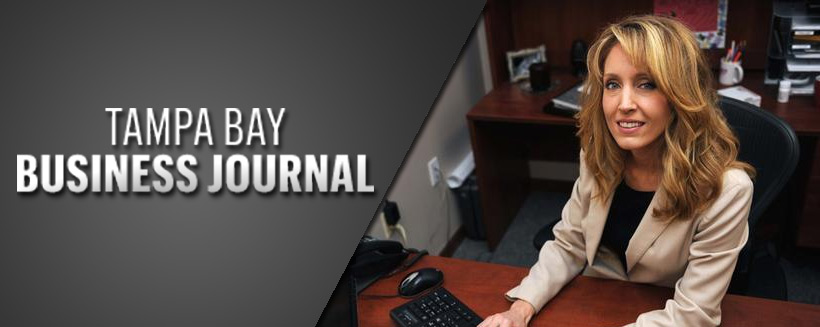
Monica Eaton was running an e-commerce business when she ran into every retailer’s nightmare: Visa and MasterCard had frozen hundreds of thousands of dollars of her funds and she could not fill orders for her customers.
The problem, according to the credit card companies, was too many disputed transactions, or chargebacks, many of them due to fraud. In learning how to deal with the chargebacks at her own company, Eaton-Cardone became an expert in the complexities of the process, and developed technology to help merchants avoid them. She commercialized that technology through Chargebacks911, a Clearwater company she founded to help retailers recover money lost to chargebacks.
In addition to serving as chief operating officer at Chargebacks911, she recently took on a second role as chief information officer at Chargebacks’s parent company, Global Risk Technologies, also in Clearwater, which works with banks and credit card processors worldwide to reduce chargebacks.
“I’ve been on both sides of the fence. There tends to be a lot of fingerpointing between consumers and their banks, and the merchants and their banks,” Eaton-Cardone said. “There’s a perception there’s a lot of conflict but the reality is all these parties want the same thing – an efficient and well-balanced process that’s fair.”
Chargebacks occur when a credit or debit card transaction is disputed, either by the cardholder or by the issuing bank on the cardholder’s behalf. Some chargebacks are legitimate, such as when a customer wants a refund because a purchase was not authorized or the goods or service they purchased were not delivered on time, or the goods were damaged. Other chargebacks are fraudulent; for instance, a customer could receive the purchased items, but claim they did not and dispute the charge, and if the merchant doesn’t fight back, the customer gets the item for free.
That’s known as “friendly fraud,” and it’s especially prevalent in online transactions, which have more than doubled in the United States since 2009. It’s also become an international problem, up 41 percent since 2013 in the United Kingdom alone, Eaton-Cardone said.
“The U.S. had ruled the marketplace in e-commerce growth until 2014. Now e-commerce in the U.K., China and other countries is growing much faster and banks are not prepared for that growth,” she said.
Most software systems designed to detect chargeback fraud analyze historical data. That’s good only if the system is dealing with stolen credit cards where the technology is not rapidly changing, she said.
“But the online marketplace is a rapidly changing environment. By the end of 2017, 75 percent of all digital transactions will be mobile,” she said. “Things change pace so rapidly that a solution that’s effective for chargeback fraud has to constantly change.”
That’s what Chargebacks911 and Global Risk Technologies offer – a solution designed for online transactions, she said. Global Risk Technologies plans to introduce the technology initially in Europe, followed by China and Australia.
The firm – headed by Gary Cardone, Monica’s husband – has been expanding. It currently has 350 staff members, including about 50 people at its Clearwater office. Others are at an office in New York, and it recently opened a location in Dublin.
